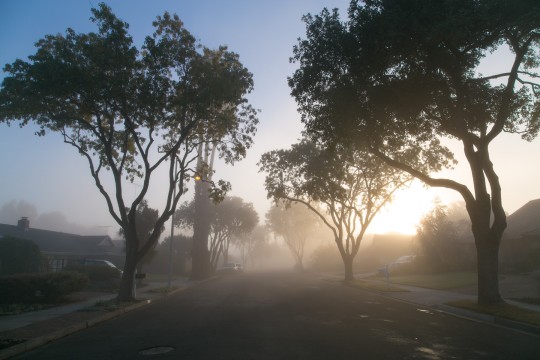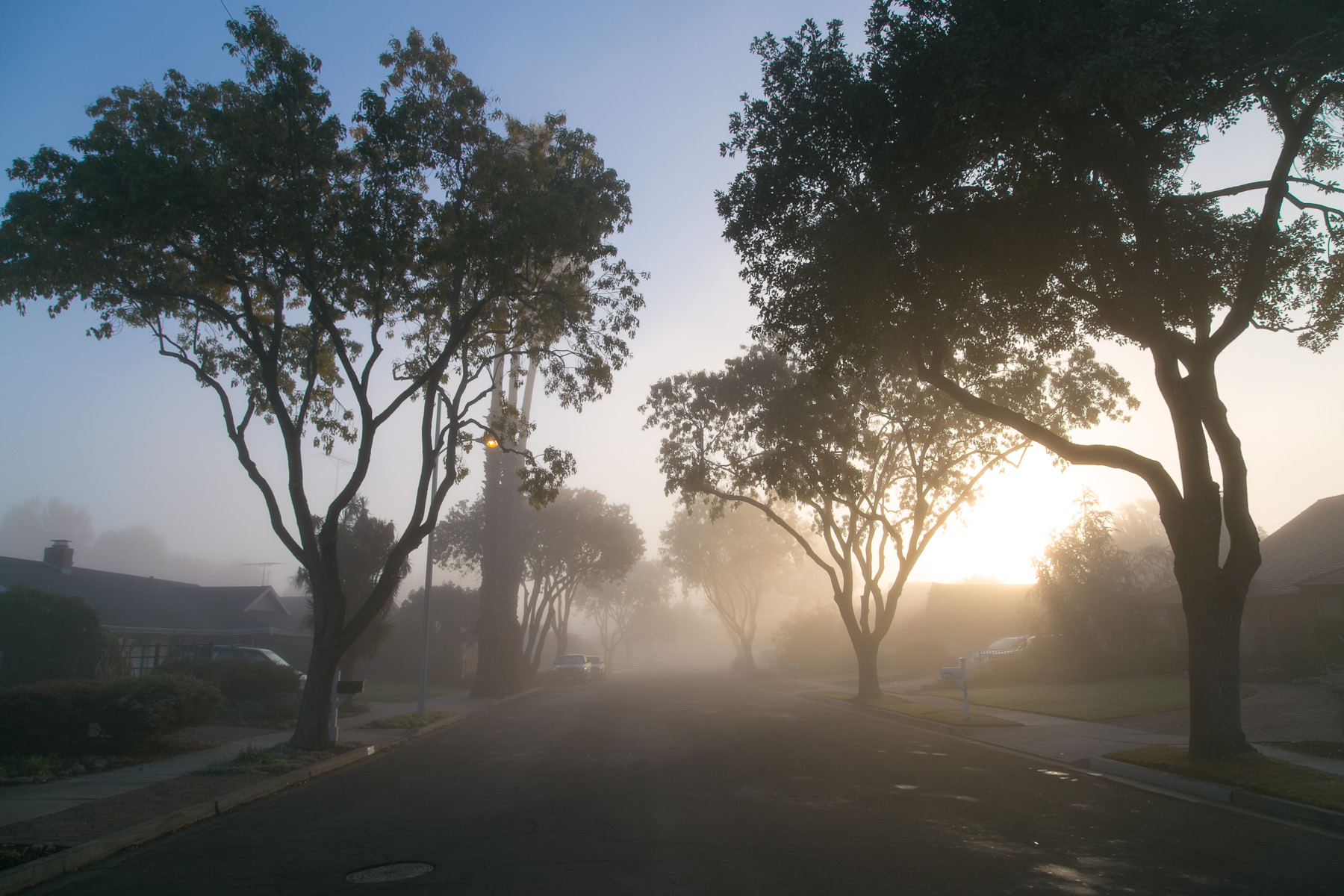I was gently roused at 7:30 this morning. I’ve been exhausted recently, still trying to recover physically and mentally from my recent epic 5-day journey to LA/Boston/NYC, so I wanted to sleep in. The light from the window was bright, but much softer than usual, which didn’t make sense, I thought to myself. Santa Barbara has been rather gloomy (which hasn’t helped me regain my energy), so why was it so bright just before sunrise? Then it dawned on me. Fog.
I knew I had only a moment. I hastily threw on a jacket, grabbed my camera, poked in my contacts, then ran outside to be greeted by a nice thick bank of fog.
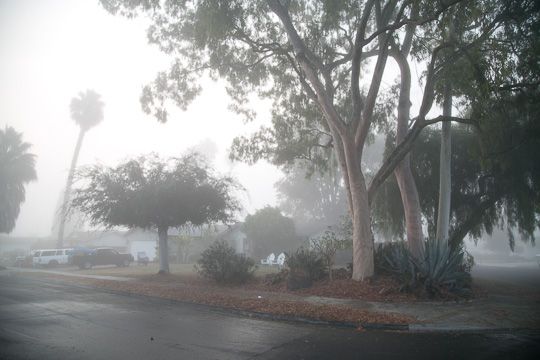
This sleepy Saturday morning, the whole neighborhood was quiet, but I was quite excited and wide awake. Fog is like California’s version of a beautiful snowy morning on the east coast. Serene, bright white, breathtaking, rare, and gone within hours. Of course, me being me, I wanted to shoot trees. My destination was a lightly forested park about a mile away, but I knew that the long corridors of the streets would be exciting landscapes in the fog too.
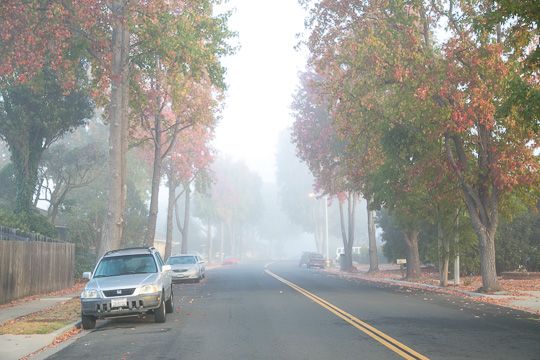
Fog is versatile as a subject. Uneven patches that can create interesting textures float in and out in a matter of seconds. Zoom into farther objects to force the light to travel through even more fog and the contrast will be even more reduced.
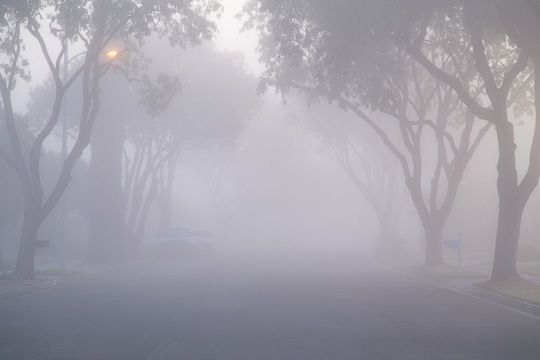
Along the way, I also learned that these super-cool and super-moist nights that precede fog are those that cover everything with dew. Finally, I had the chance to shoot the water droplets that condense on spider webs, which turn into little strings of pearls.
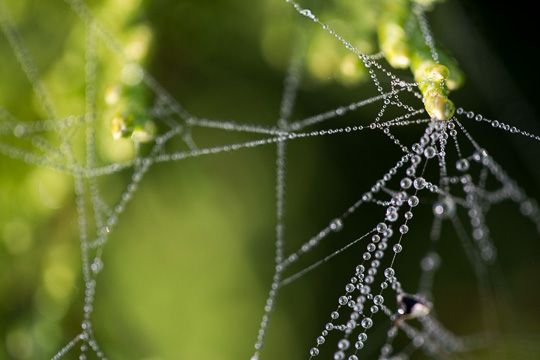
Maybe I had stopped too much on the way, but I arrived at that park just a little too late. I had wanted to shoot a scraggly tree with the background completely shrouded in dense fog. What I got was this, a gentle fading of the background, where the second row was still clearly visible, but that behind that a gentle mist of mere shapes.
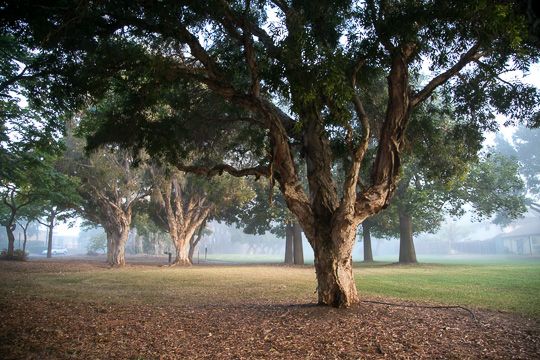
Fog is fickle. Other than a few places like SF and London, it’s not a common occurrence. It’s always accompanied by moisture (which is bad for lenses) and cold temperature (which is bad for fingers). Other than night fog shots, you need to wait for the sun for illumination, but wait too long and the sun burns away all the water. However, just like how sunset is the best time for pictures every day, that fleeting transition is the best moment for fog photography. When the sun inevitably begins to gnaw away one side of the fog, it creates these muted colors that blend together in awesome gradients across the sky. I’ve seen it before, and it is the feature of one of my simplest but favorite shots ever. Today, the gradient was different, a dull yellow sun blending into the sleepy blue of the morning sky. It lingered for just a moment.
